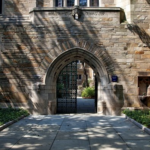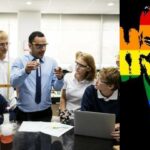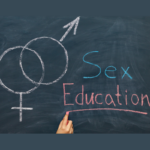What is the Role of the New South Wales Education Standards Authority?

Controversial New South Wales Opus Dei schools are now under investigation by the New South Wales Education Standards Authority (NESA) after recent media coverage which raised concerns about the school curriculum.
A story, which recently aired on ABC’s 4 Corners, told the stories of alumni from both Redfield College (for boys) and Tangara School for Girls, both of which are run by the small but powerful Catholic organisation, known as Opus Dei.
Allegations levelled at Tangarra school include that pages of the NSW curriculum were ripped out of textbooks, homophobia is rife, and expressing sexuality in any way, shape or form is strongly discouraged.
Some of the former students say that their time at the school left them with psychological damage.
The school is now under investigation by the New South Wales Education Standards Authority (or NESA).
What is the role of NESA?
Under the Education Act 1990 (NSW)(‘the Act’), NESA is responsible for monitoring the compliance of non-government schools with the requirements of the Act, including those relating to curriculum, assessment, school registration and teacher standards.
It also has investigatory powers and, in the event it finds a school has failed to comply with the requirements of the Act, the body can direct and require the school to rectify the situation.
In 2016, NESA superseded The Board of Studies, Teaching and Educational Standards (or BOSTES).
While it can in exceptional circumstances and as a last resort deregister schools that seriously and systemically contravene the Act, NESA typically works with institutions to rectify issues and ensure compliance moving forward.
NESA does not have the power to investigate:
- allegations of criminal offences;
- matters relating to the statutory functions of other government agencies, such as alleged breaches of funding conditions; or
- matters where common law remedies may be available to the complainant, such as alleged breaches of contractual obligations.
Categorising the allegations against Opus Dei schools
The allegations levelled at the schools affiliated with Opus Dei are unlikely to amount to criminal offences. Rather, they primarily relate to failures to follow the curriculum or promote the well-being of students.
A specific allegation is that the schools were being used as ‘recruiting grounds’ for Opus Dei; with impressionable children being pressured into being members of the fundamentalist, cult-like organisation.
Other allegations include that Tangara school ‘discouraged’ students from getting the HPV cervical cancer vaccine because it would encourage ‘promiscuity’.
Former female students allege they were told that getting abortions and taking the pill would cause cancer.
According to some, a graphic cartoon video of abortion which showed foetuses with their limbs ripped off was also played to students – without parental consent. Many of the students also say they were taught to idolise Saint Maria Goretti, an 11-year old was stabbed to death after fighting back when her neighbour tried to rape her, as a symbol of chastity and purity and virginity because she would rather die, than go to hell as a victim of rape.
Concerningly, parents appear not to know the level of ‘indoctrination’ that the students say they experienced.
Democracy and religious freedom
There are serious questions to be answered here about religious freedom, religious belief and the danger of misinformation disguised as ‘education’ particularly in a formal school setting, propped up by taxpayers, where highly impressionable youth are a captive audience.
And it’s a fine line – a principle of democracy is freedom – that includes freedom of faith, and also the freedom of parents to make decisions about their children’s education.
There are more than 1,000 Catholic Schools currently operating throughout Australia. However, the schools affiliated with Opus Dei are Independent schools that run outside the Catholic Education system. Both Redfield College and Tangarra however, are listed with the NSW Education Department and receive both state and federal funding.
Publicly funded indoctrination?
According to reports, in 2021, Tangarra received $5 million from state and federal governments. Almost $3.9 million came from the Commonwealth and almost $1.1 from the New South Wales government.
In 2021, Redfield received $2.7 million from the Commonwealth and $850,000 from the New South Wales government.
Many politicians have sent their children to these schools. Premier Domenic Perrottet is a former student of Redfield College.
In the past few days as the story has gained media momentum and become a popular topic of social media commentary, the Premier has remained steadfastly neutral, saying… “when complaints are made in relation to any government service we refer those to the relevant authorities.”
He also told the media: “It’s not a crime to be Catholic”.
The Premier has never made a secret of his strong Catholic faith.
But there’s no doubting that it is a particularly unsettling time for the Catholic Church, in the wake of George Pell’s death, and the strong emotions his death and very public requiem mass, has stirred up for victim survivors of child sexual abuse.
Despite his acquittal on child sexual abuse charges, George Pell’s legacy will always be linked to victims of child abuse within the Catholic Church, because he failed so many of them by not doing anything despite his knowledge of what was occurring.
And in doing nothing, he denied these victims the opportunity for acknowledgement, access to justice and the vital support and resources which may have helped them to heal.
‘Secrecy and Coverup’
Despite the various platitudes made by the Church since the final reports issued by the Royal Commission into Institutional Responses into Child Sexual Abuse, the embedded culture of ‘coverup’ remains in place for as long as the Catholic Church continues to refuse to openly acknowledge victims and settle compensation claims in a swift and transparent way.
Many victims are still battling the Church in courts. Some say they are hampered by delays and other legal tactics by the Church which continue to deny them justice.
This only deepens the wounds for victim survivors and exacerbates the tension between the Catholic Church and the community.







